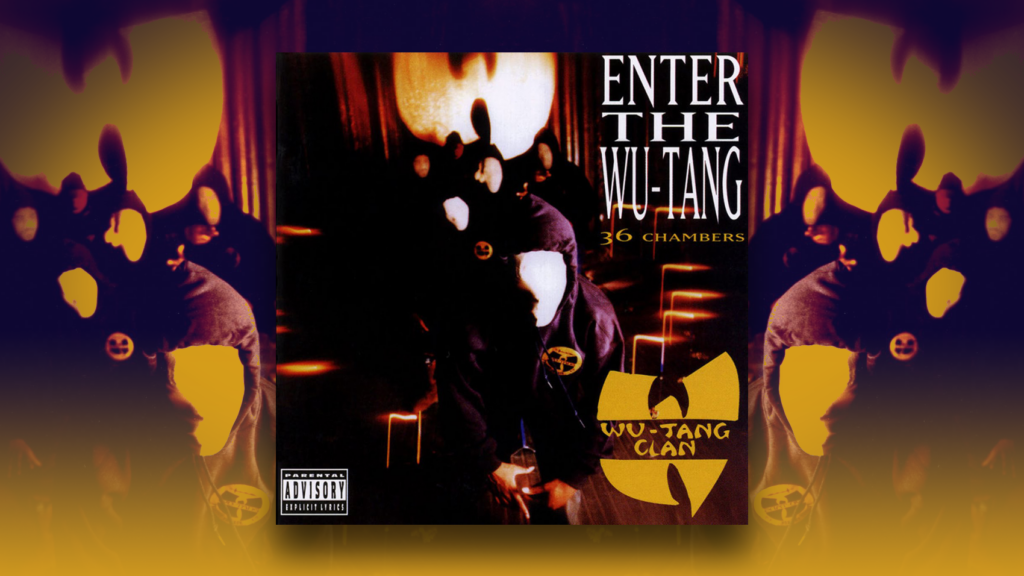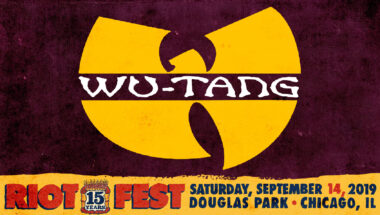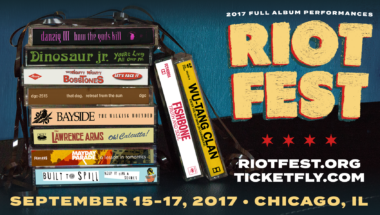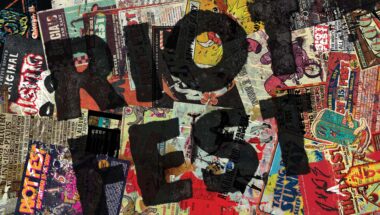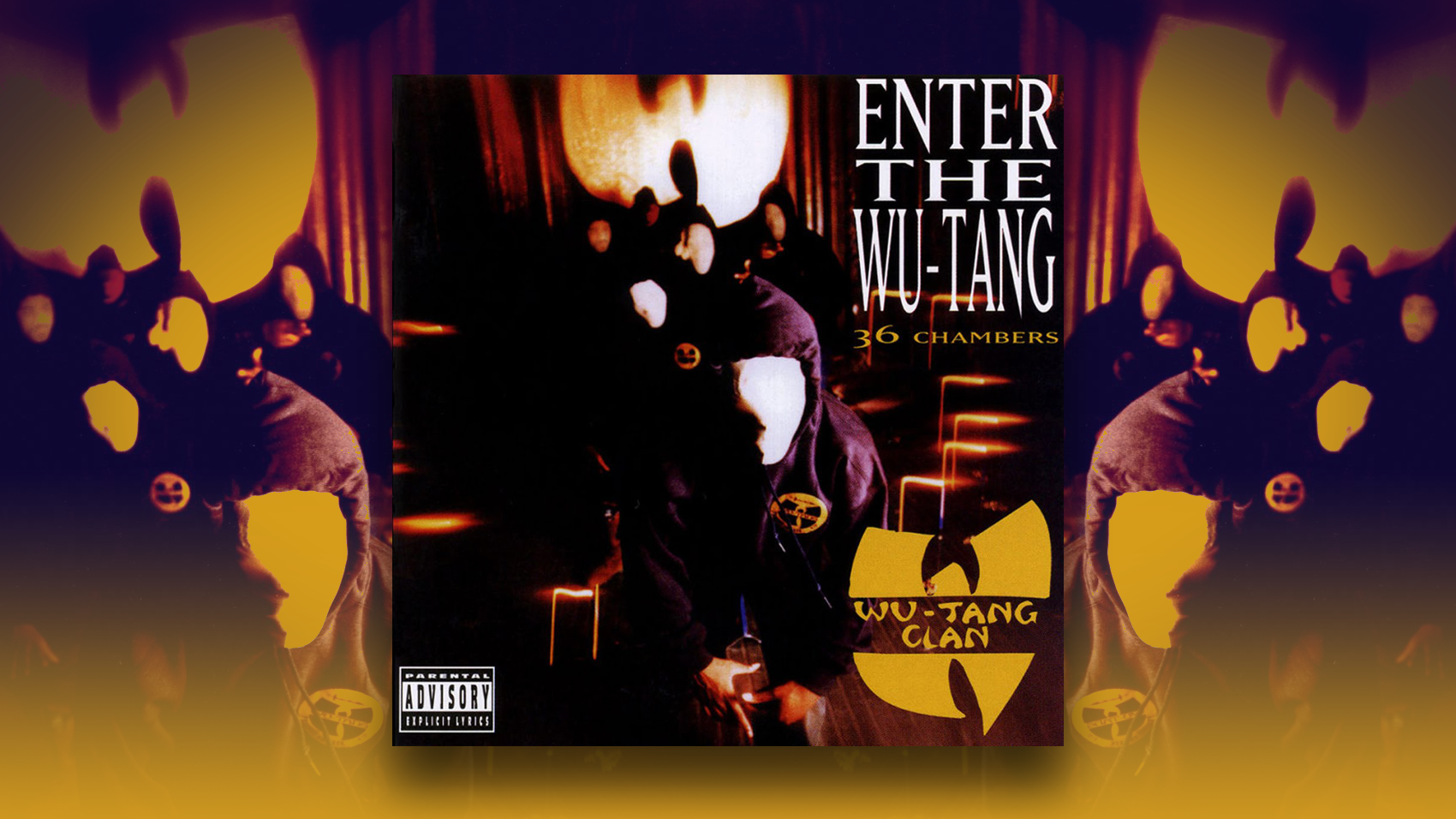
An itemized inventory of Wu-Tang Clan’s Enter The Wu-Tang (36 Chambers): nine cigarette cherries glowing beneath the caged walkways of Staten Island’s Stapleton Projects; nine sword blades tarnished by splintered bone; the feeling of a knee scraped on dirty concrete; the synthetic grease and trash smell of summertime New York subway tunnels; untraceable Timberland boot prints astride mounds of filthy wintertime slush; countless cans of food stolen by Ghostface Killah during recording sessions; an inestimable weight of marijuana; $300–in quarters–for studio time used to record “Protect Ya Neck;” one VCR whirring in 2 a.m. silence; miscellaneous Kung-Fu flicks; GZA’s failed record deal with Cold Chillin’; RZA’s failed record deal with Tommy Boy.
In the mid-late 1980’s, cousins Robert Diggs, Russell Jones, and Gary Grice traveled around New York City in search of rap battles. Though their group Force of the Imperial Master had recorded a well-received single, “All In Together Now,” Jones was left in the cold when Diggs and Grice signed a management contract with Jamaica Records. Grice (“The Genius”) and Diggs (“Prince Rakeem”) respectively inked single deals with Cold Chillin’ and Tommy Boy. In the Wu canon, their 1991 releases are minor works. New York was largely still in the throes of the Daisy Age and hip-house–if rappers were hiding razor blades under their tongues, they were also wearing Pan-African pendants on their chests–and The Genius and Prince Rakeem were cast as unserious horn-dog lotharios. (Clearly, their A&R’s were mountain climbers who played electric guitar.) Chastened–and in Diggs’ case briefly imprisoned–they returned to civilian life and became GZA and RZA.
There is New York rap before 36 Chambers and New York rap after 36 Chambers, but the line of demarcation seems to need geography, topography, or climatology–it’s almost as physical as it is mental. Surely, the first gathering of the Wu-Tang Clan’s nine members registered on a Chinese seismograph. Or, maybe, an astronomer in Tucson noticed an abnormal celestial glow. Perhaps, for a brief moment, the whistling winds in Patagonia calmed. Beyond the kicks and blows inevitably scored by RZA’s crackling samples and the Wu’s brickbat bars, there must’ve been some minor disturbance catalyzed by those low-fi Hit Factory sessions.
There wasn’t a group like Wu-Tang in 1993. (There wasn’t anyone like Wu-Tang in 1993.) Public Enemy was militant, and had the S1W’s, but they didn’t lurk around corners like Carhartt-clad boogeymen. Kool G Rap & DJ Polo was cigar room mafioso rap; Wu-Tang were Staten Island Ferry blunt wrap rap. Onyx and Black Moon were hard–Wu-Tang were unhinged. Mobb Deep were little hellions, but Wu-Tang were the dungeon masters. They knew what to do with a spiked bat (hit your testicles), they knew what to do with a rusty screwdriver (stab your tongue). Inspectah Deck put it simply on “Bring Da Ruckus”: “I rip it hardcore, like porno-flick bitches/I roll with groups of ghetto bastards with biscuits.”
Of course, the Wu weren’t just a group of certifiable ghetto bastards with biscuits–the FBI’s file on Ol’ Dirty Bastard claims the group was running guns in Ohio–they were homebrewed linguistic geniuses. A rasping Method Man punctuated “The smoke from the lyrical blunt makes me–” with an actual cough; Raekwon, the physical embodiment of a gold tooth, describes the Park Hill Projects as “the crime side, the New York Times side”: Ghostface Killah, rap’s own Allen Ginsberg, rhymes “elephant tusk” with “Egyptian musk.”
On Enter The Wu-Tang, bullet casings plinkle like springtime dewdrops, black faceless criminals, backlit by flashing blue and red sirens, run from white cops, and sliding doors on Mazda MPV’s reveal enough weapons and drugs for a second Iran-Contra Affair. Ol’ Dirty Bastard, RZA, GZA, Method Man, Ghostface Killah, Raekwon, Inspectah Deck, Masta Killa, and U-God crafted a gritty, merciless world–their world. It’s a place worth revisiting–again and again.
Revisit that world on Saturday, September 16th, when Wu-Tang Clan performs Enter the Wu-Tang (36 Chambers) in its entirety at Riot Fest in Chicago’s Douglas Park.
